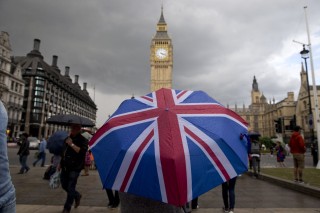I grew up in a European Union-influenced Africa where trade deals, aid, immigration and the likes are largely impacted by the regional body’s interests. So, it was with as much surprise and yet a sense of anxiety that I joined the world in watching the United Kingdom vote on June 24 in a referendum to leave the EU, a move that was sensationalised as “Brexit”.
The vote to leave sent shock waves through the global markets and Africa was not left out. An unexpected yet slightly intended victim, African currencies, started to slip. South Africa’s – the UK’s largest African market – rand plunged by almost 8 percent from R14.33 to R15.45 against the US dollar; panic spread across other African markets because many economies were experiencing shocks as a result of low commodity prices.
Africa holds a significant importance for the UK in the face of Brexit, given that a relationship built primarily along colonial lines which many “blame” the crown for under-developing Africa at the same driving the wheels of industrialisation for the United Kingdom.
As colonial power started to decline, the economy of the British Empire faltered, many believe this motivated a move to join the European Union which was accepted in the early 1970s as a way to avoid its further economic decline.
Now that Brexit has become a reality, we have a continent that is about to have deals renegotiated with the EU (absent the UK) and with Britain separately, and such new agreements are expected to have resultant effects on the African continent.
One must note that despite having language (lingua franca) and cultural norms shaped by British behaviour, African countries have tried their best to distance themselves from economic and political partnerships with Britain, in favour of neo-colonialism offered by countries such as China and Russia who offered an arm of support against British imperialism.
Citizens of countries colonised by Britain still feel unjustified by their treatment in many European countries especially the UK either at entry ports or migrants.
Half of sub-Saharan Africa’s GDP is accounted for by Nigeria and South Africa, and both countries have long ties with the UK, especially with respect to trade – in other news, medical and educational tourism in the UK has been boosted by “wealthy” Nigerians alike.
What to expect
Referendum agitation
The populist trend that has sparked across Europe and even the US with the emergence of Trump is one to look out for on the African continent especially for the most populous black nation, Nigeria.
Brexit has given more motivation to Biafran agitators who have been calling for a separate state; a few protests have broken out in the Eastern part of Nigeria.
The agitation for the separate state has existed in tones, both hushed and not, since the 1960s, following the civil unrest that broke out in Nigeria soon after her independence, though it is still uncertain if a public vote would be made as regards the subject as many proponents of Nigeria have said that the “unity of Nigeria is unnegotiable.”
Trade deals and agreements
Trade relations between the African continent and the EU, which are defined by the Cotonou Agreement of 2000, as well as a series of so-called Economic Partnership Agreements between the EU and Regional Economic Communities (RECs), would definitely need some refiguring as the old agreements outlining bilateral relations in terms of the exchange of goods and services no longer have Britain privy to it.
According to research from Barclays, Brexit’s economic impact on Africa, and particularly sub-Saharan Africa, could be damaging to the continent’s development. Barclays argues that the referendum will materially affect growth on the continent, with growth in sub-Saharan Africa expected to half to just 1.4 percent and a much slower pace in the coming years especially for sub-Saharan Africa’s three biggest economies: Angola, Nigeria, and South Africa, which account for nearly three-fifths of the region’s GDP.
Reduced external concerns
Another impact of Brexit on Africa would be the end of British external concerns or as described by many “outwardness” – Britain’s concern with global development issues.
From an African perspective, aid to the continent has helped in many development spheres such as support for African peacekeeping forces, education, fighting HIV/AIDS, malaria, tuberculosis, and other diseases as well as eliminate outstanding debts of the poorest countries.
Britain’s share of payments to the European Development Fund (EDF), the European Union’s main vehicle for providing development aid to Africa, is around 14 percent, a third after France and Germany. Brexit could lead to a retrenchment from outwardness with possible negative implications on the UK’s development initiatives and this is not good news for aid recipients.
Concerns are also running high in terms of security. Britain had an influence on setting EU policy for Somalia by ensuring that the EU funds costs of the African Union Mission in Somalia (AMISOM), that protects the Somali Federal Government from the extremist militant group al-Shabab, but as Brexit goes into effect the mechanism for stabilizing such a country, will no longer exist leaving room for re-emergence of terrorism in that region of the continent.
90 percent of AMISOM’s costs were paid for through the African Peace Facility (APF), an EU funding mechanism set up to support peace- and capacity-building operations on the continent.
In light of such development as noticed around the world, the African continent can no longer hide behind the excuse of “third-world” or “developing”. One wonders why the wave of populism hasn’t driven regional bodies on the continent to deliver on people-centric reforms that will propel the individual countries and the Africa as a whole towards self-sufficiency.
As Brexit takes shape, other countries globally either through leaders or citizen-enabled engagements have started to push for more populist views, in Africa’s best interest, there is no time like the present for the continent to shift from external dependency to self-sufficiency built on intra- and inter-African relations.








